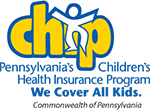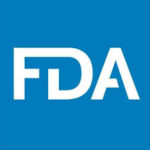The following is the latest COVID-19 information from Pennsylvania state and federal regulators, legislators, and others as of 4:00 p.m. on Monday, April 13.
Pennsylvania Update
Governor Wolf
- Last week Governor Wolf signed an executive order to facilitate the targeted distribution of COVID-19 personal protective equipment and supplies among Pennsylvania health care providers. The Department of Health has published an FAQ on this executive order. The state also has published a survey for health care providers to complete to help it identify current resources. All covered entities – including hospitals – are required to report inventories of the specified supplies, equipment, and pharmaceuticals by 11:59 p.m. on Thursday, April 16. The state will update and direct completion of the survey in the future as needed.
- Governor Wolf today announced that he and the governors of New York, New Jersey, Connecticut, Delaware, and Rhode Island will create a multi-state council to “…develop a fully integrated regional framework to gradually lift the states’ stay at home orders while minimizing the risk of increased spread of the [COVID-19] virus.” See the governor’s announcement here.
General Assembly
 Over the weekend, House Speaker Michael Turzai changed the House of Representatives’ session schedule to hold a non-voting session day today and a voting session day tomorrow in an effort to enable Republicans to move forward with relief efforts for businesses related to the COVID-19 crisis. There has been speculation that if a quorum is present the Speaker may seek to suspend temporary House rules permitting remote voting to ease the passage of Republican-sponsored relief measures for businesses affected by limits on their ability to operate during the COVID-19 emergency. The House also has canceled its session for Wednesday and Thursday of this week.
Over the weekend, House Speaker Michael Turzai changed the House of Representatives’ session schedule to hold a non-voting session day today and a voting session day tomorrow in an effort to enable Republicans to move forward with relief efforts for businesses related to the COVID-19 crisis. There has been speculation that if a quorum is present the Speaker may seek to suspend temporary House rules permitting remote voting to ease the passage of Republican-sponsored relief measures for businesses affected by limits on their ability to operate during the COVID-19 emergency. The House also has canceled its session for Wednesday and Thursday of this week.
Both the House and Senate are scheduled to return to session on May 4.
Daily Department of Health COVID-19 Briefing
- In the past few days the number of newly reported COVID-19 cases has declined slightly, leading Department of Health Secretary Levine to declare that “social distancing is working.” The new case increase, she explained, is now linear rather than exponential, although she warned that Pennsylvania may not yet have reached its peak.
- 1179 health care workers have been diagnosed with COVID-19, which is about four percent of the total state case count.
- 1688 residents of 215 long-term-care facilities have tested positive as well.
- Currently 2205 people are in hospitals to be treated for COVID-19 and 665 of them are on ventilators.
- Across the state, 44 percent of acute-care beds and 38 percent of ICU beds remain unoccupied and nearly 70 percent of ventilators are available for use.
- The state still lacks testing supplies so only those who are symptomatic are being tested. Secretary Levine hopes to do population-based testing in the future but does not expect to be able to do it in the near future.
- Serology testing is not available at this time.
- Governor Wolf spoke to Vice President Pence this morning and reports that the state will be receiving a shipment of N95 masks later this week.
- Eventually the state hopes to follow up on those who have been discharged from hospitals after being treated for COVID-19 but is not doing that now.
- While there have been published reports of people who seem to have recovered from COVID-19 suffering relapses, Pennsylvania has not seen any such cases yet.
- When asked if the state planned to take any additional measures to help hospitals, Secretary Levine pointed to the health care provider money in the federal CARES Act and the $450 million loan program Governor Wolf announced last week.
- During her Saturday briefing, Secretary Levine said that Philadelphia and southeastern Pennsylvania have enough acute-care beds, ICU beds, and ventilators right now.
- She also said there could be a surge in southeastern and northeastern Pennsylvania over the next week, with possible surges in western and southeastern Pennsylvania coming later.
Hospital Emergency Loan Program
Late last week Governor Wolf announced a $450 million Hospital Emergency Loan Program. The state’s Department of Community and Economic Development, which is administering the program, describes it as follows:
The Hospital Emergency Loan Program (HELP) was established to provide critical working capital bridge financing to hospitals located within the Commonwealth that are adversely impacted by the coronavirus (COVID-19) outbreak. The loan funds are intended to provide a short-term financing solution for hospitals until federal grant funding through the Coronavirus Aid Relief, and Economic Security (CARES) Act is received by the hospitals. The program is administered by the Pennsylvania Department of Community and Economic Development (DCED) through the Pennsylvania First Program (PA First).
Go here for a more detailed description of the program and go here to apply for a loan.
 Children’s Health Insurance Program
Children’s Health Insurance Program
The state’s CHIP program has announced changes in its program requirements that seek to ease access to CHIP and keep families enrolled in CHIP during the duration of the COVID-19 emergency.
Pennsylvania Hospitals and the CARES Act
Pennsylvania Senator Pat Toomey’s office reports that the state’s hospitals will receive $1.2 billion of the $30 billion now being distributed by the federal government to hospitals and health care providers. The $30 billion comes from $100 billion that the CARES Act designated for health care providers. A second round of funding is expected.
Pennsylvania Department of Labor and Industry
The Wolf administration has issued a news release summarizing the new federal unemployment compensation benefits established under the CARES Act, including eligibility and payment information.
Federal Update
 Department of Health and Human Services
Department of Health and Human Services
- HHS has published its terms and conditions for providers that accept grants from the $100 billion in the CARES Act designated for hospitals and other health care providers.
- The HHS Office of the Inspector General (OIG) has updated its FAQ on administrative enforcement authorities addressing arrangements directly connected to the COVID-19 crisis to include answers to two new questions about providers providing free or reduced-rate services to skilled nursing facilities and hospitals extending free, HIPAA-based telehealth platforms to independent physicians. This site also advises stakeholders how to submit their own questions for OIG consideration.
- HHS’s Agency for Healthcare Research and Quality has announced certain COVID-19-related administrative flexibilities for its grant recipients and applicants.
- HHS’s Office for Human Research Protections has issued guidance on the protection of human research subjects affected by COVID-19-related research.
Centers for Medicare & Medicaid Services
- Late last week CMS updated its FAQ on COVID-19 Medicare fee-for-service billing.
- CMS has issued new guidance on portions of two COVID-19 bills that expand upon coverage for essential diagnostic services among the COVID-19 emergency. The new guidance, building upon the Families First Coronavirus Response Act and the CARES Act, implements the requirement for group health plans and group and individual health insurance to cover both diagnostic testing and certain related items and services provided during a medical visit with no cost sharing. This includes urgent care visits, emergency room visits, and in-person or telehealth visits to the doctor’s office that result in an order for or administration of a COVID-19 test.
Department of Labor
- The Department of Labor has updated its guidance on the pandemic emergency unemployment compensation program with revised operating, financial, and reporting instructions.
- The Department of Labor’s Occupational Safety and Health Administration has issued enforcement guidance reminding compliance safety and health officers that COVID-19 is a reportable illness and that employers are responsible for recording cases of COVID-19 if the case is confirmed and work-related.
Food and Drug Administration
 The FDA has released guidance on its new, temporary policy regarding non-standard personal protective equipment practices during human drug compounding at state-licensed pharmacies or federal facilities not registered with the FDA as outsourcing facilities.
The FDA has released guidance on its new, temporary policy regarding non-standard personal protective equipment practices during human drug compounding at state-licensed pharmacies or federal facilities not registered with the FDA as outsourcing facilities.- The FDA has issued an emergency use authorization (EUA) granting permission for the use of selected advanced sterilization products to be use to decontaminate N95 respirators. This EUA is explained in an FDA news release.
- The FDA has announced that it will be publishing a notice in the Federal Register with product-specific guidance to support generic development of chloroquine phosphate and hydroxychloroquine sulfate.
- The FDA has issued a warning to caregivers that humans should not be treated with the version of the anti-parasitic drug ivermectin that is formulated for the treatment of animals.
- The FDA has authorized the emergency use of two commercial blood purification systems to treat COVID-19 patients admitted to hospital ICUs with confirmed or imminent respiratory failure.
Centers for Disease Control and Prevention
- The CDC has published interim clinical guidance for the care and management of patients with confirmed COVID-19.
- The CDC has updated its FAQ on the provision of care to obstetric patients with COVID-19 or at risk of contracting COVID-19.
- The CDC has posted interim guidance for public health personnel evaluating persons under investigation and asymptomatic close contacts of confirmed cases of COVID-19 in their homes or non-home residential settings.
National Institutes of Health
- The NIH has launched a study to quantify undetected cases of COVID-19.
Medicaid and CHIP Payment and Access Commission
 MACPAC has written to CMS administrator Seema Verma to express its concern that the manner in which CMS has chosen to distribute $30 billion of the $100 billion designated in the CARES Act for hospitals and health care providers “…does not account for the real and pressing concerns of safety-net providers that are on the frontlines of serving the nation’s poorest and most vulnerable people…” MACPAC also asks Ms. Verma to “…ensure that safety-net providers, including hospitals considered deemed disproportionate share hospitals (DSH) for the purpose of Medicaid payment…children’s hospitals, and other providers serving Medicaid and other low-income patients have access to federal funds made available through the CARES Act without delay.” See the MACPAC letter here.
MACPAC has written to CMS administrator Seema Verma to express its concern that the manner in which CMS has chosen to distribute $30 billion of the $100 billion designated in the CARES Act for hospitals and health care providers “…does not account for the real and pressing concerns of safety-net providers that are on the frontlines of serving the nation’s poorest and most vulnerable people…” MACPAC also asks Ms. Verma to “…ensure that safety-net providers, including hospitals considered deemed disproportionate share hospitals (DSH) for the purpose of Medicaid payment…children’s hospitals, and other providers serving Medicaid and other low-income patients have access to federal funds made available through the CARES Act without delay.” See the MACPAC letter here.
Resources to Consult
Pennsylvania Department of Human Services
Pennsylvania Department of Health
Centers for Disease Control and Prevention
(To receive this daily update directly, sign up for our mailing list at info@pasafetynet.org.)